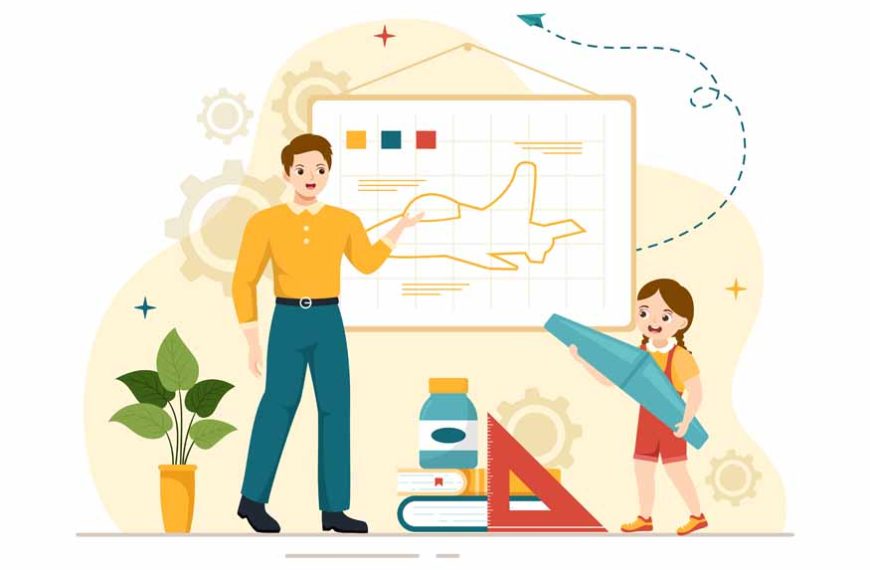Learning planning skills is imperative to success in any area of life. Planning skills are not only for adults; children can equally benefit from learning core planning skills essential for their age to progress in life effectively. It is a fundamental responsibility to equip the children with the tools they need to thrive in life. Among other tools, teaching them effective planning skills stands out as a crucial thing. Planning skills empower children to face the challenges of life with independence, organisational skills, and success in various aspects of their lives, and this is why planning skills are important. By instilling these skills early on in their lives, children can become adept at managing time, setting goals, and making informed decisions. In this article we will explore: what is planning skills, how to teach planning skills, why planning skills are important, and how to improve your planning skills.
It is crucial to introduce the concept of planning skills to children since they will have the question regarding what are planning skills. Planning skills is a skill that equips you with the ability to make informed decisions for the best outcome out of something in life. It involves planning, productivity, accuracy, and effectiveness. It is important because it reduces uncertainty and provides a clear picture of the end goals.
Here are some very important planning skills that the children must be taught and made aware of:
Time Management
- Creating Routines: Encourage the children to create daily routines. This can involve setting aside specific times for homework, play time, meals, and bedtime. It will introduce discipline and structure into their lives. One tip is to ask them to create a time-table on a chart paper and stick it to the wall.
- Prioritisation: Teach children to prioritise tasks based on the urgency and importance of the tasks involved. Help them understand that it is important to complete the urgent and important tasks first. This will also teach them how to manage time more effectively.
- Setting Realistic Timelines: Guide them in setting achievable timelines for tasks or assignments. Emphasise the importance of breaking larger tasks into smaller, more achievable chucks of tasks at a time.
Goal Setting
- SMART Goals: Teach children about SMART (Specific, Measurable, Achievable, Relevant, Time-bound) goals. Help them articulate their aspirations in a way that makes them tangible and achievable.
- Long-term Planning: Encourage children to set both short-term and long-term goals. This could range from finishing their daily homework to planning for future career aspirations.
- Celebrating Achievements: Encourage and participate in the celebration of milestones when a goal is complete, whether short-term or long-term in nature. This will motivate them and leave them with a sense of accomplishment.
Decision Making
- Identifying Options: Teach children to consider various options before making a decision. Teach them how to measure the pros and cons of each option before making a solid, final decision.
- Critical Thinking: Help children develop critical thinking by discussing with them the consequences and possible outcomes of different choices. Encourage them to think in an analytical manner rather than in an impulsive manner.
- Learning from Mistakes: Teach children that mistakes are opportunities for learning. Encourage a growth mindset by addressing how decisions can be evaluated and improved upon.
Organisational Skills
- Creating Checklists: Guide children to create checklists for tasks and activities. Thai helps them stay organised and on track.
- Decluttering: Teach children the importance of decluttering spaces regularly. Help them organise their belongings. Make them understand the benefits of an organised environment which has an impact on the mind as well.
- Using Tools and Resources: Introduce children to tools like planners, calculators, calendars, or digital organisational apps. Teach them how to use these necessary tools effectively.
Problem Solving
- Identifying Problems: Encourage children to identify and recognise problems that they encounter in their daily lives. Help them understand that problems are a natural part of life and that they can be opportunities for growth and improvement.
- Brainstorming Solutions: Introduce a creative mindset by encouraging children to brainstorm potential solutions to the problems that they face. Guide them through the process of considering various approaches by brainstorming with them.
- Implementing Solutions: Teach children to implement and evaluate their chosen solutions. Encourage perseverance and resilience in finding solutions to challenges.
Flexibility and Adaptability
- Adapting to Changes: Teach children the importance of being flexible when unexpected changes or circumstances occur in life. Help them understand that sometimes plans need to be adjusted and that it is perfectly okay and normal.
- Managing Stress: Guide children in managing stress and frustration when plans do not go accordingly as expected. Encourage them to stay positive and adaptable when such things happen in life.
The significance of these planning skills go beyond academics; they are crucially helpful in various aspects of life. They lay the foundation of success in many things in life. Now that we have looked at what planning skills and how to teach planning skills, let us dive into the question of why planning skills are important. Here is why planning skills are crucial:
- They enhance independence: Children equipped with planning skills learn to take charge of their responsibilities. It adds to independence and self-reliance.
- They build confidence: Effective planning helps in boosting confidence in children. They learn to navigate through challenges and accomplish tasks systematically.
- They improve academic performances: These planning skills contribute significantly to academic success by aiding in better organisation, time management, and critical thinking.
- They promote long-term success: Mastery of planning skills equip children with tools necessary for success in their future careers and personal lives.
Are you wondering how to improve your planning skills? The answer is simple: Persistence, practice, and broaden your horizon. Persistently practise the tools, and keep the scope open to learn new planning skills along the way such as Resource Management, Reflection and Review, and Communication Skills.
Instilling planning skills in children from a young age is pivotal for their holistic development. These skills help them tackle the challenges in life with confidence, resilience, and a strategic approach. By nurturing these abilities, groundwork for a child’s prosperous future is established. Teaching planning skills is an ongoing process that requires patience, consistency, and encouragement. By incorporating these planning skills in the children’s daily activity helps in building an environment that encourages planning and preparation. Children become empowered as effective planners and decision-makers, setting them on a path towards success in all aspects of life.
For more information, visit EuroKids, or visit a center nearest to you.
















